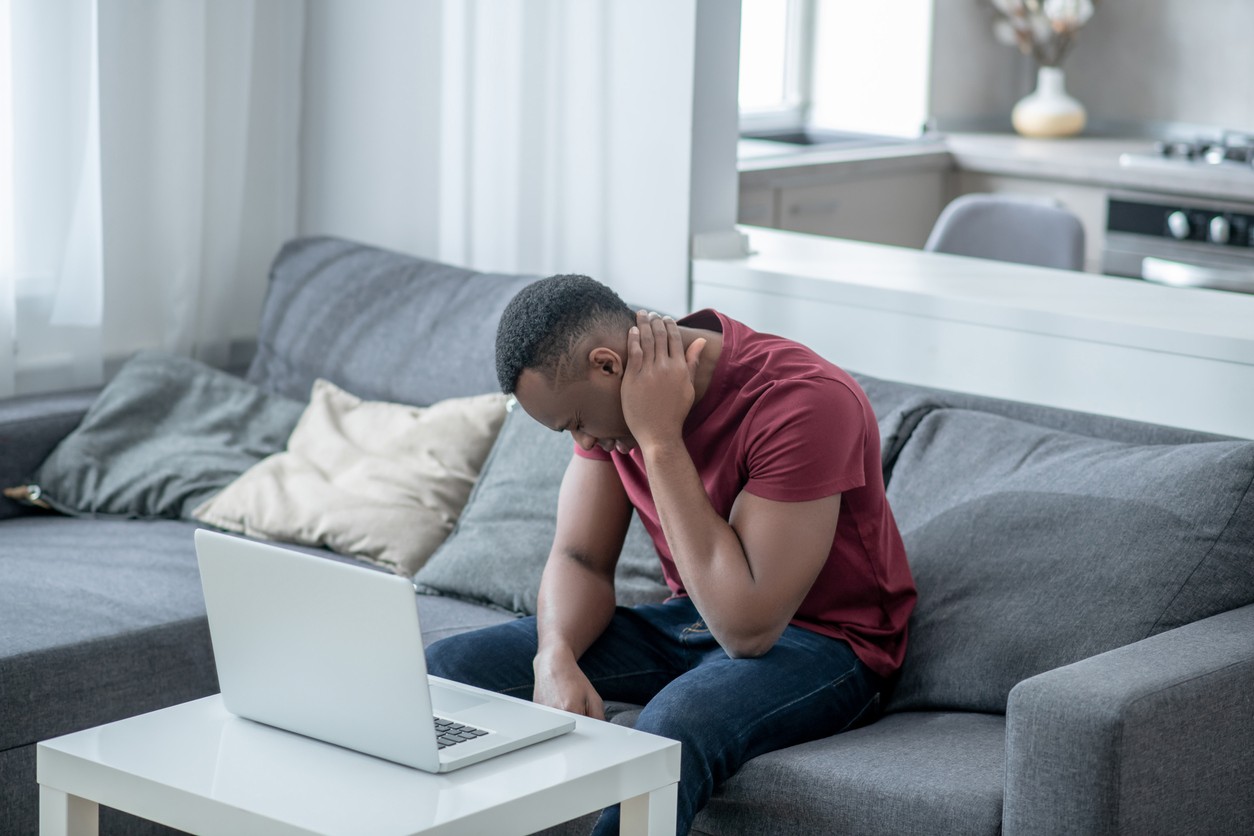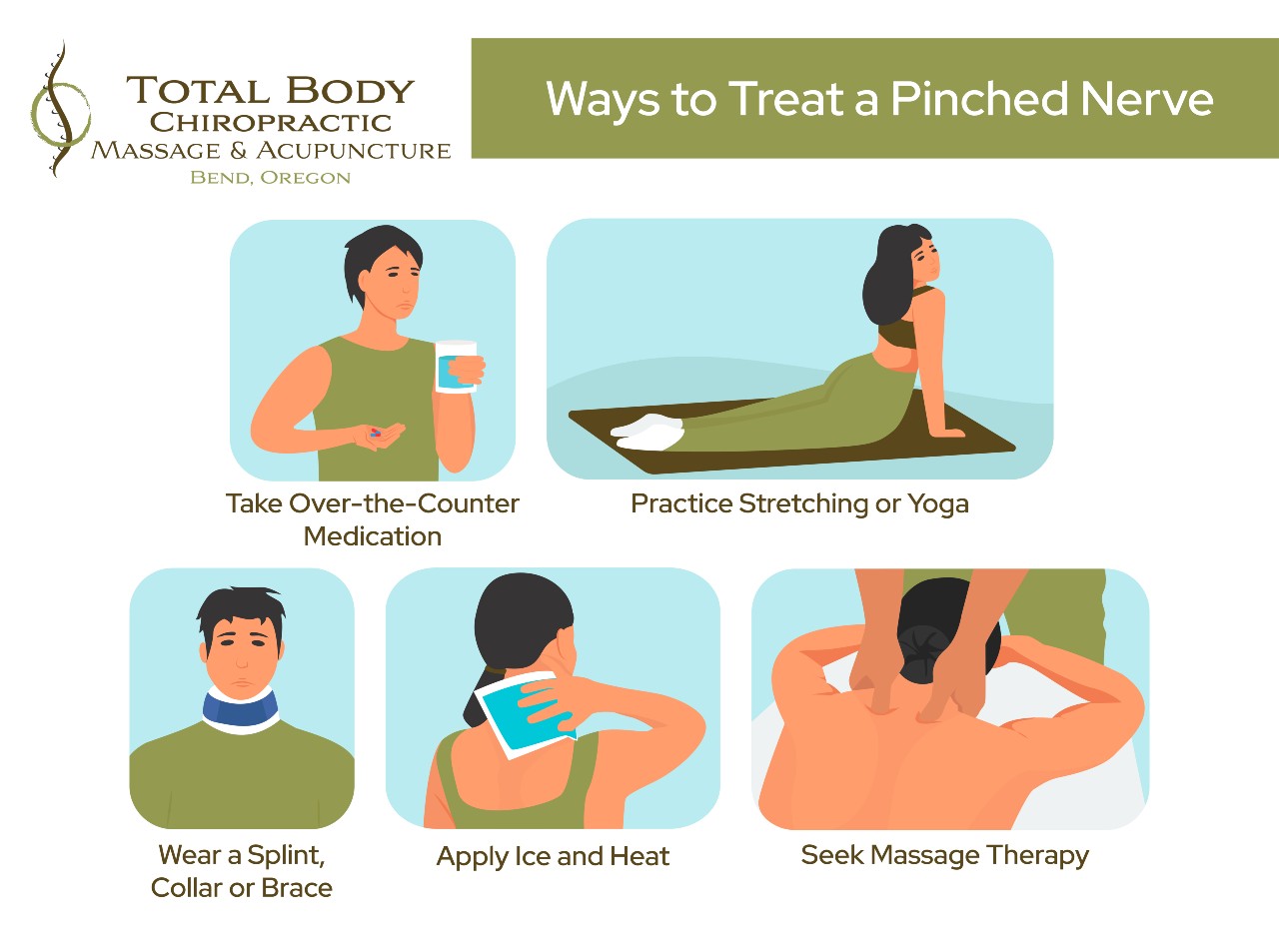Can a Chiropractor Treat a Pinched Nerve?
Have you ever experienced shooting pain in your arms or legs? Or maybe an intense tingling in your hands and feet has woken you up out of your sleep. Well, you may have a pinched nerve. Not only does this condition lead to pain and discomfort, it can also impact your body’s ability to send the proper signals to vital systems. Fortunately, chiropractic services offer an affordable and near-immediate solution to ease your pain and restore regular function so that you can feel your best.
Continue reading to learn more about the symptoms and causes of pinched nerve and your available treatment options.
What is a pinched nerve?

A pinched nerve, also known as radiculopathy, occurs when too much pressure or force is applied to a nerve by surrounding tissues, including bones, cartilage, muscles, and tendons. Typically, the problem begins at the nerve root and radiates outward. Pinched nerves can occur in many places throughout the body, but mainly originate in the neck and upper or lower back.
The elbows and wrists are also common locations for pinched nerves due to repetitive use. Carpal tunnel syndrome is an example of a pinched nerve in the wrist. This condition is characterized by pain and numbness in the hands and fingers. Desk workers are highly susceptible to this form due to constant typing and hand positions.
Sciatica is also a form of radiculopathy that affects the sciatic nerve (the longest nerve in the body) and causes radiating pain through the hips, buttocks, and legs.
In the short-term, pinched nerves do not cause damage. Left untreated, they can become serious, leading to chronic pain. Worst case scenario, the fluid and swelling causes permanent, irreversible damage. Finding swift and appropriate treatment is vital for long-term comfort.
Pinched Nerve Symptoms

Pinched nerve symptoms are easy to spot. Depending on the location, you may experience symptoms in corresponding areas:
- If your pinched nerve is in your neck (the cervical spine), you might experience neck stiffness, and pain and numbness in the shoulder or arm.
- When the lumbar spine (lower back) is affected, you might feel radiating pain in your back and hips through your legs.
- A pinched nerve in the upper middle back can cause chest pain. If you are experiencing severe chest pain, you should call your doctor immediately, as it could indicate a more serious condition.
Regardless of location, you can still experience any combination of the following symptoms:
- Numbness
- Shooting pain in the arms or legs — often the first sign
- Decreased sensation in the affected area
- Sharp aching around the nerve
- Burning feeling radiating from the nerve
- Tingling, or pins and needles sensation
- Muscle weakness in the areas supplied by the nerves
- Neck pain
- Feeling that your limbs have “fallen asleep”
These symptoms can feel worse when you’re sleeping or just after waking up.
Pinched Nerve Causes

A pinched nerve can result from a variety of causes, from lifestyle habits to other chronic conditions. Determining the cause of your problem is key to finding a long-term solution and preventing recurrence.
Bone or cartilage is one of the most common pinched nerve causes. For instance, a herniated disc will slip out between the vertebrae in the spinal cord and press on the nerve root that corresponds to the leg. In other instances, swollen or tight muscles and tendons surrounding the nerve root can compress the nerves.
Other common causes of a pinched nerve include:
- Injuries, from sports, car accidents, etc.
- Rheumatoid arthritis, as the inflammation in the joints can compress the nerves.
- Hobbies or sports, mainly those that have repetitive movements, like tennis.
- Obesity puts more pressure on the nerve and swells pathways causing constriction
- Overuse or stress, especially in repetitive movements of the hand, wrist, or shoulder
- Bad posture or repeated strain from poor work ergonomics
- Prolonged bed rest can put pressure on nerves.
While anyone can have a pinched nerve, there are certain characteristics and factors that may make you more susceptible to them:
- Sex. Women have a greater susceptibility to carpal tunnel syndrome, or pinched nerves in the wrists.
- Age. Being over 50 increases your risk for pinched nerves, due to natural degeneration and the prevalence of arthritis among this demographic.
- Bone spurs. Bone spurs stiffen and narrow areas where nerves travel, causing a pinch. People with osteoarthritis are likely to develop bone spurs and, in turn, pinched nerves.
- Pregnancy. Water retention and weight gain during pregnancy swells neural pathways.
- Diabetes. High blood sugar damages the nerves over time.
- Active people. Lifting, twisting, or pulling motions can cause a herniated disc – one of the many causes of pinched nerves.
Ways to Treat a Pinched Nerve

Pinched nerves will often heal on their own in about four to six weeks with the right treatment. Like many injuries, rest is key for self-healing, as the body repairs itself during sleep. Avoiding movements that may irritate the nerve is another crucial step in pinched nerve treatment.
- NSAIDs – Over-the-counter medications, like ibuprofen, can reduce your pain and ease the swelling that may be contributing to the pinched nerve.
- Stretching or yoga – Gentle stretches and strengthening exercises can removing some of the pressure off the affected area. However, stretching too deeply can have the opposite effect and further irritate your nerve and worsen symptoms. If you feel your symptoms begin to worsen, stop the exercise completely.
- Splint, collar, or brace – You may be advised to wear a sprint, collar, or brace on the affected area to stabilize the area. It can prevent further aggravation, especially when sleeping. Hand or wrist splints are standard when treating carpal tunnel syndrome.
- Ice and Heat – Just like traditional injuries, this option reduces swelling and inflammation and boosts blood flow to the impacted nerves to encourage healing. Apply ice at 15-minute intervals about 3 times a day. Heat can be applied for up to an hour 3 times a day.
- Massage therapy – Massage therapy can reduce pain and stress in the affected areas. Gentle pressure relieves the surrounding muscle tension that may be contributing to your condition. Deep tissue massage should not be used as a treatment for pinched nerve pain as it can make symptoms worse.
- Spinal decompression therapy – A motorized traction therapy that changes the force and position of the spine. Through cycles of gentle stretching and relaxation, spinal decompression removes pressure off the nerves.
Your chiropractor may also suggest some lifestyle changes, such as using cushions and neck rests to support your posture when sitting. Updating your workspace with an ergonomic keyboard and mouse or using a standing desk may also reduce added pressure. Click here for more ways to update your desk area.
Doing regular low-impact exercise, like walking or swimming, can keep your body limber to prevent recurrence after your pinched nerve heals. Aim to complete about 2.5 hours of moderate-intensity exercise every week.
Losing weight with the help of a nutritionist may also remove significant pressure from the nerves and boost your general health.
If your symptoms do not resolve after a few weeks or months of non-invasive treatment, your doctor may suggest surgery. In these cases, surgery may involve removing bone spurs or parts of herniated discs – or making more room for nerves to pass through certain areas depending on the location of your condition. Surgery acts as a last resort because of the side effects and possible complications.
Can a Chiropractor Treat a Pinched Nerve?
Yes! Chiropractors specialize in disorders in the musculoskeletal system, including pinched nerves. During your appointment, you and your chiropractor will discuss your lifestyle habits, symptoms, medical history, and other relevant information to determine the indirect cause of your problem.
From there, they will do a physical examination to pinpoint any misalignments that may be putting pressure on your nerves. Through a manual adjustment, your chiropractor restores proper alignment, and frees the trap nerve. This action can also relax surrounding muscles that might be compressing the nerve and reduces inflammation, which can also irritate nerves.
Neck and back pain are often a major indicator of a pinched nerve. Problems in these areas can radiate down to the hands or feet, making you extremely uncomfortable. Luckily, your Bend chiropractors specialize in treating neck pain.
Depending on the location of your pinched nerve and the frequency of your condition, your chiropractor will build a treatment plan including stretches you can do at home, lifestyle changes that can help, and a schedule of office visits. They may also suggest spinal decompression therapy or massage therapy in addition to your regular routine to keep your body moving as it should and prevent the muscle tightness and stress that often causes pinched nerves.
Chiropractic Services at Total Body Chiropractic, Massage, & Acupuncture
If you’re experiencing neck or back pain that you think may be due to a pinched nerve, you don’t have to live with it. Chiropractic treatment offers fast relief with complete healing. We combine the power of chiropractic with holistic treatment options, like massage and acupuncture, to help your body function at its highest and prevent future disruptions. Schedule your appointment today and let us help you get back to comfort.

